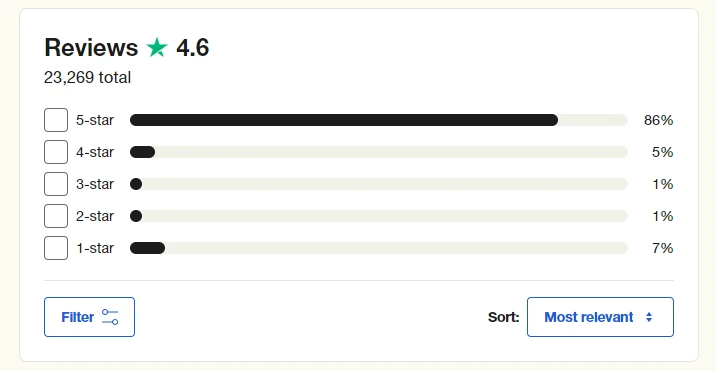Local SEO reputation management involves a combination of strategies, including managing online reviews, monitoring feedback, and maintaining consistent and accurate business information across online platforms.
By focusing on SEO reputation management, businesses can work to build a strong and positive reputation within their local community, which can lead to increased trust, credibility, and ultimately, more customers.
What is local SEO reputation management?
Local SEO reputation management is the practice of monitoring and improving the online reputation of a business within a specific geographical area. It involves managing the brand reputation of the business and ensuring that it is positively represented on the internet. This is essential for businesses that rely on local customers, as their reputation within their local community can have a significant impact on their success.
By actively managing local SEO reputation, businesses can reduce the impact of negative feedback and build a strong online presence. This is critically important as consumers turn to online reviews and search results when making purchasing decisions. Making a strong local online reputation is a critical aspect of a successful local business strategy.
Businesses that prioritize local reputation management can position themselves as trusted and reliable providers within their community, ultimately enhancing their ability to attract and retain local customers.
Why is reputation management important in SEO?
Reputation management is crucial in SEO because it directly impacts how a website is seen by search engines and potential customers. Search engines like Google take into account a website’s authority and trust when determining its ranking in search results. A positive reputation signals to search engines that a website is trustworthy and relevant, which often leads to higher rankings. On the other hand, a negative reputation can drastically lower conversion rates and keep customers away from purchasing products, or services.
In today’s digital age, consumers heavily rely on online reviews and social proof when making purchasing decisions. A strong online reputation can help build trust and credibility with potential customers. Nonetheless, managing your brand’s reputation
Types of local SEO reputation management
While reputation management solely relies on keeping a positive name of the brand, it also consists of 2 different types, which are proactive and reactive reputation.
Proactive reputation management
Proactive reputation management is when taking strategic steps to build and maintain a positive for your brand or organization. Rather than simply reacting to negative publicity or feedback, proactive reputation management involves engaging, monitoring conversations, and mitigating bad reviews. This can include being transparent and honest in communications and actively seeking out opportunities to showcase positive achievements and contributions. By implementing proactive reputation management, individuals and organizations can build trust and credibility with their audiences.
Reactive reputation management
Reactive reputation management involves monitoring and responding to negative feedback or events that could potentially harm a company’s reputation. This approach focuses on addressing issues as they arise, rather than proactively working to build and maintain a positive reputation. When a company is faced with negative customer complaints, it is essential to respond promptly and effectively to minimize the damage to the brand. This could involve addressing the concerns directly with the individuals involved or taking steps to rectify any mistakes that have been made. It is crucial for businesses to have a plan in place for dealing with reputation crises. By actively managing their reputation in a reactive manner, companies can protect their brand image and maintain the trust and loyalty of their customers. However, it is also important for businesses to complement this reactive approach with proactive efforts to build a strong and resilient reputation in the long term.
How to do local SEO Online Reputation Management
1. Protect your brand name on the internet
The most important tip for maintaining your reputation with SEO is controlling the internet results, whenever your brand name is typed on Google’s local search. For a successful business, the results displayed should contain the name of your website, and if external websites are shown, they should be review websites only.
If another brand is currently ranking with your name, without mentioning that the brand is not owned by them, or let’s say the same brand name, but with a different extension rank on the web, then you have a problem. An issue regarding these 2 examples is that the copycats may try to piggyback your good reputation and use it to attract local customers.

The bigger problem is that if their service does not meet the client’s expectations, your business will suffer financially, and will get a bad reputation score. And as we know, a damaged reputation is hard to repair, especially when you are required to earn many positive reviews from real customers.
To completely dominate the local search with your online business, start with creating social media profiles. Even though rare, many quality businesses have less than 3 social profiles, which they can be found on. Registering on the top social media websites, can effectively boost your SEO success, and help with managing the reputation of your local business.
2. Be active on social media
Social Media is one of the direct ranking signals in Local SEO. It helps Google to understand how well your business is performing. By leveraging the results from your business pages, search engines understand how others interact with your business.
For example, some of the top factors are the number of shares, mentions, and reactions they leave while viewing your local business listing. Additionally, social media websites help with establishing authority and managing reputation, by answering questions and receiving followers.
3. Register your business on review sites
Registering your local business on review websites is a great way to get more reputation, and stand out from other businesses. Just like Google Business Profile, a review website gives local customers the opportunity to express themselves, and leave an honest opinion on your website. The more reviews a business gets, the more customers can understand if the product or service is good for purchase.

However, in such cases, even bad reviews count, as it helps customers understand that the business is not sketchy. The overall reputation of any business relies on both good and bad reviews, due to the reason that people are searching for the pros and cons of buying a product or ordering a service. Nonetheless, if a business receives a negative review, its reputation doesn’t automatically go downhill. In fact, the business owners or the agency managing the business reputation, can respond, and offer the client compensation.
For example, many business owners try to speak with their clients and seek their attention, as to why a negative review was placed. A reason for that is creating a study, and investing in improving the points that the business lacks. So getting ratings and reviews on your business can actually improve the user experience, and show that the company cares about each user’s opinion.
4. Utilize Google Business Profile
Google Business Profile listings are the top reputation platform, which is closely monitored by Google, and acts as a direct ranking signal in local SEO. A reason for that is the experience customers have on the search engine. For example, setting up a Google My Business listing can be more rewarding, than building citations or signing up on review sites alone.
Local customers start their buyer journey with a search on Google, and 80% of the searches are done locally. With that said, utilizing your Google Business Profile as a reviews magnet, can help with establishing your business reputation online. However, to appear in the top results, optimizing the Google Business Profile is a must. On top of that, the business needs to receive at least 10 reviews to start being noticed by Google and ranked for the target local areas. In such cases, asking previous clients for reviews can be beneficial, even if they will result in a 1-star rating, along with a negative comment.

Once a business has acquired its first reviews (preferably positive), Google often rewards them with a link in the top search results of the Google Map pack.
5. Create digital PR campaigns
Creating digital PR campaigns for reputation management has become essential for businesses. This can be achieved by creating and distributing high-quality content, such as press releases and blog posts that highlight the positive aspects of the brand. Digital PR campaigns can also include strategies for managing crises and addressing negative feedback or reviews. Digital PR campaigns also involve monitoring and analyzing online to understand public perception and adjust local SEO strategies. This involves the use of monitoring tools and analytics to track mentions, comments, and engagement with the brand.
In addition, digital PR campaigns can also involve working with influencers and online ambassadors to help spread positive messages and improve the overall reputation of the brand.
6. Use reputation management software
With the rise of online reviews and social media, it’s crucial for businesses to actively manage and maintain a good image. This is where reputation management software comes into play. By using this software, companies can easily monitor and respond to customer feedback across various online platforms, and proactively address any negative comments or reviews. This not only helps in maintaining a positive brand image but also allows businesses to identify areas for improvement and take necessary action to ensure customer satisfaction.
Reputation management software can also help in showcasing positive reviews and testimonials, enhancing the company’s credibility and trustworthiness among potential customers.
